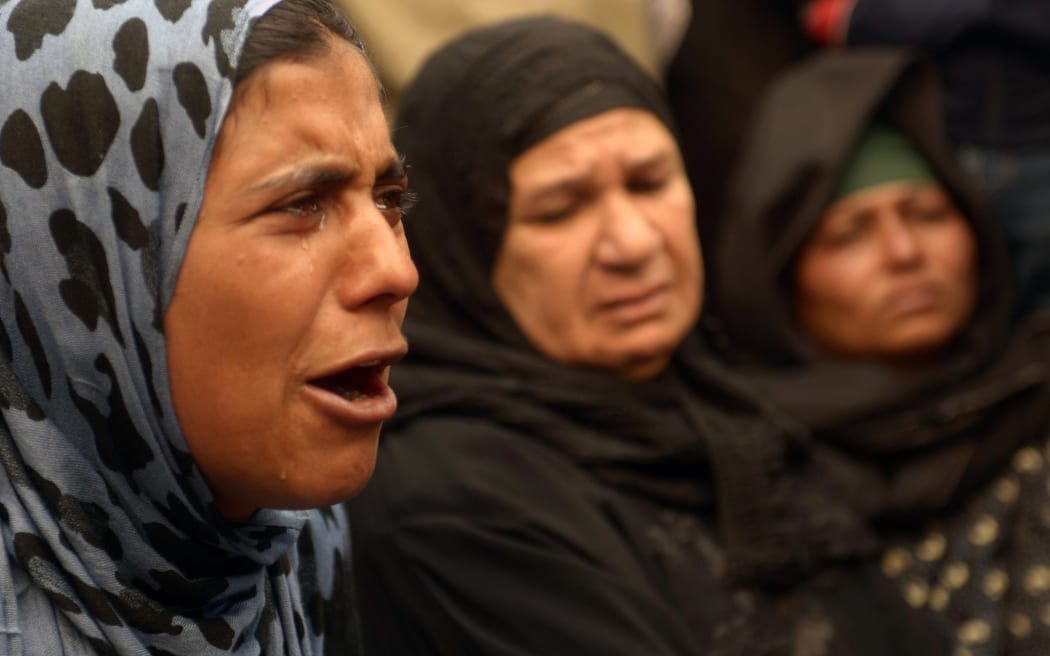Egypt's Muslim Brotherhood leader has gone on trial along with hundreds of other Islamists before the same judge who triggered a global outcry when he sentenced 529 convicted rioters to death.
The trial of Mohammed Badie and about 700 supporters of deposed president Mohamed Morsi was adjourned after just a few hours until 28 April, when judgement and sentencing is expected, a lawyer said.

A relative of one of the accused cries outside the court. Photo: AFP
Defence lawyers boycotted Tuesday's session of the trial in the city of Minya, south of Cairo, branding it "farcical", AFP reported.
Monday's mass sentencing was denounced by the United Nations as a breach of international human rights law.
The roughly 1200 defendants in the case, including the 529 sentenced on Monday, are accused of the murder and attempted murder of policemen during riots in Minya on 14 August last year.
The rioting erupted as news spread that police had killed hundreds of Mr Morsi's supporters while dispersing two Cairo protest camps.
Egyptian media reported the judge, Said Yusef Sabry, has a history of delivering harsh judgements, including a 30-year prison sentence for a man who stole dresses from a women's clothing store.
Legal experts said the unprecedented sentences on Monday were likely to be overturned on appeal, after the court rushed through the verdict in two hearings.
The sentencings sparked international outcry and sent a chill through opponents of the military-installed regime, which has placed more than 2000 alleged Islamists on mass trials since the army overthrew Mr Morsi in July.
The court's decision has been criticised by rights groups, the UN, the United States and the European Union, which questioned the fairness of proceedings against so many defendants lasting just two days.
Egypt's army-installed interim government has defended the court's handling of the case, insisting that the sentences had been handed down only "after careful study" and were subject to appeal.

